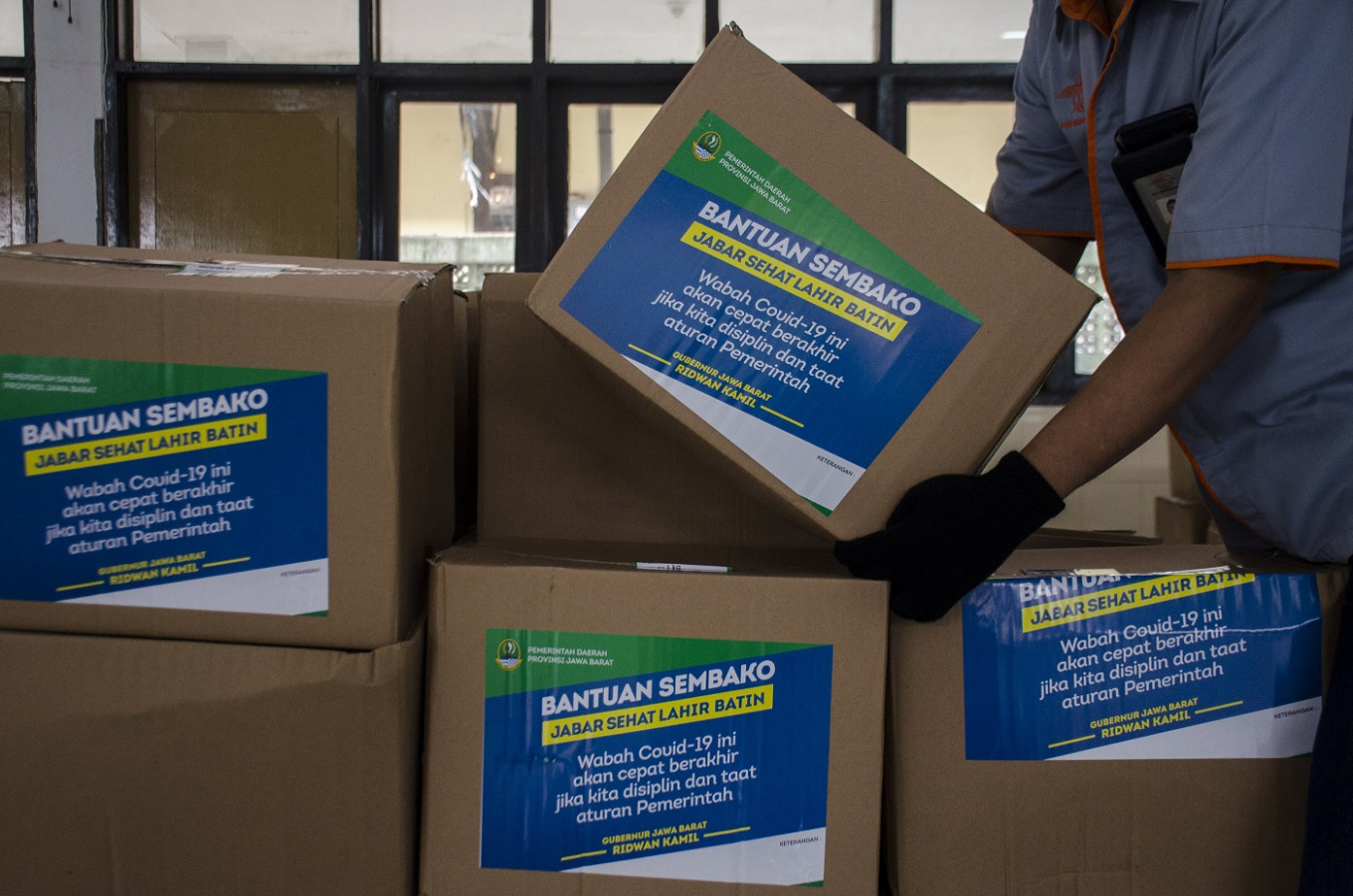Popular Reads
Top Results
Can't find what you're looking for?
View all search resultsPopular Reads
Top Results
Can't find what you're looking for?
View all search resultsData fiasco causes delays in disbursement of social assistance: Study
Change text size
Gift Premium Articles
to Anyone
A
lack of reliable data has caused delays in the distribution of government social assistance to eligible recipients, as poverty rises amid the unfolding health crisis, a study has found.
A study by the SMERU Research Institute has found that persistent issues with recipient data have contributed to delays in the disbursement of aid through two government assistance programs for the poor, namely the Family Hope Program (PKH) and the staple food card program, from the original schedule in April to as late as May and June.
The study, conducted between late April and mid-May in five cities and regencies, also found indications that the aid disbursement had been mistargeted, as 400 of the 2,000 listed recipients for the social assistance in a district surveyed should have been deemed ineligible, as they had either escaped poverty or were deceased.
“There are poor families that the programs have not covered and the numbers are large in some places,” Hastuti, a SMERU researcher who conducted the study, said during a virtual discussion on July 17. “All these conditions show that there is something wrong with the data.”
The disbursement of all state-sponsored social assistance falls under the purview of the Social Affairs Ministry’s Integrated Data for Social Welfare (DTKS), which was built upon a 2015 Statistics Indonesia (BPS) survey that sought to map the distribution of wealth in the bottom 40 percent of the population.
The unfolding pandemic has severely battered the economy and the government is expecting 4 million people to fall below the poverty line this year, increasing the number of poor to 28 million, or around 10.6 percent of the population.
Around 1.63 million Indonesians fell into poverty between September last year and March, as the COVID-19 pandemic took a toll on the poor across the country, Statistics Indonesia (BPS) data showed.
The government has channeled Rp 695.2 trillion (US$47.6 billion) into its COVID-19 response, of which Rp 203.9 trillion has been allocated for social safety net programs, including the Family Hope Program and the staple food card program.
The government had disbursed just 34.06 percent of the social assistance budget as of June 29, according to Finance Ministry data.
President Joko “Jokowi” Widodo has also brought attention to the slow disbursement of the government’s COVID-19 response funds and called on his ministers to go the extra mile to accelerate the implementation of pandemic policies.
Hastuti said the staple food card program was important for poor families, as it allowed them to reduce their food expenditure for up to two weeks out of every month.
Finance Minister Sri Mulyani Indrawati said at a separate event on July 16 that the government was facing difficulties identifying which households to target, as it relied on insufficient data from regional administrations.
The Finance Ministry is now working with both the Social Affairs Ministry and the Home Ministry to encourage and assist regional administrations to update their population data.
Herbin Manuhuruk, the assistant deputy head of social compensation at the Office of the Coordinating Human Development and Culture Minister, said on July 17 that the government was planning to initiative another social assistance program to provide rice to Family Hope Program recipients from July to September.
“For the COVID-19 stimulus, we cannot focus only on the Family Hope Program and the staple food card program,” said Herbin. “There is also direct cash assistance and cash aid from village funds.”
According to Villages, Disadvantaged Regions and Transmigration Ministerial Regulation No 6/2020, the government has allocated Rp 22.4 trillion from the Rp 71.19 trillion in the village fund budget to provide cash transfers to 12.3 million families affected by the crisis.
Village administrations across the country are reallocating between 25 and 35 percent of their village funds to provide Rp 600,000 in monthly cash aid for three months starting from April. The government decided in June to extend the aid program until September.










